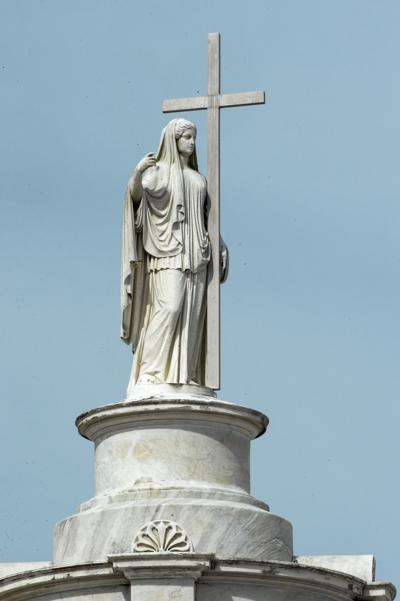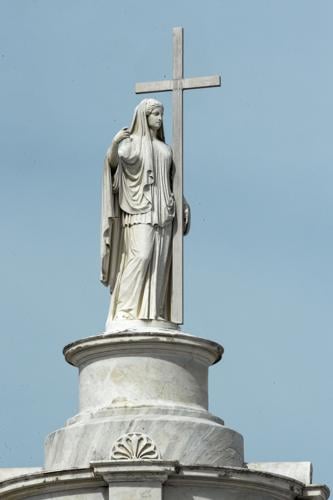At their final Bankruptcy Court hearing of 2023, attorneys for the Roman Catholic Archdiocese of New Orleans said Thursday they are making progress towards settling the long-running Chapter 11 case but remain far apart from creditors on several key issues.
Archdiocese attorney Mark Mintz told Judge Meredith Grabill that the two sides have had settlement discussions that “have been more robust recently than they had been previously,” and that they have shared rough outlines of a draft plan to reorganize the church's finances.
But perhaps the most important element of that plan – the total amount that the archdiocese is willing to pay roughly 500 claimants of clergy sex abuse and the way it will distribute the money – are still up in the air. No specific terms have been proposed.
“I wish we were further,” Mintz said. “There is a discussion that is happening. ... They are important and are moving forward. They need to move forward faster. We all agree with that.”
Three years and counting
The comments suggest the bankruptcy case of the country's second-oldest Catholic archdiocese, filed in May 2020 amid mounting allegations of child sex abuse by priests and deacons, will see its fourth anniversary in the spring and continue well into 2024 it is settled.
Thursday's hearing came one month after a particularly contentious court meeting over, among other things, the sale of a church-owned community center in the French Quarter. At that time, Grabill admonished the two sides to work more closely together.
The tenor Thursday was more genial, at least among attorneys for the archdiocese and its affiliate parishes, schools and charities; abuse survivors; and other creditors. They indicated they have been meeting and communicating.
Insurers feel left out
But other key stakeholders — the insurance companies that will be asked to pay some portion of the settlement -- said they have repeatedly been left out of negotiations and rebuffed when they ask for information about a settlement that could total $100 million or more.
“I think fundamentally they do not want us at the table, and that is what is happening,” said attorney Tancred Schiavoni, who represents insurance companies asking the court to force the archdiocese to turn over certain information, including any copies of proposed settlement plans.
Mintz said the archdiocese has shared with the insurance companies the same information it has with the creditors’ committees, including spreadsheets that list all claims and ways of grouping them to help determine how much money claimants might receive.
“The fact of the matter is he has what was shared with the committee. He may not like it or think it is as complete as it needs to be,” Mintz told the court. Mintz acknowledged that the draft “does not have a number in it. It does not say, 'The debtor will put X dollars into this plan.'”
Grabill put off a ruling on the issue until January.
Nonmonetary settlement
One area where the two sides are making progress is in hammering “non-monetary terms” of a settlement, according to comments made at the hearing by Grabill and the attorneys. While no one described in detail what those terms might be, settlements in other Catholic Church bankruptcy cases around the United States give a clue about such provisions, which are said to help bring closure to victims.
The Diocese of Wilmington, Delaware, which settled its case in 2022, is required to list all its accused sex offenders on its website and has established child protection policies, including hiring a consultant. Its bishop also publicly apologized to abuse survivors on behalf of the diocese.
The Diocese of Syracuse, New York, which settled its case earlier this year, was required to strengthen its child protection plan.
The Diocese of Great Falls-Billings in Montana published a list of all its sex offenders, adopted a whistleblower policy and established policies for reporting clergy sex abuse.
Mintz said that in the New Orleans archdiocese's case, the two sides have had “robust drafting with respect to nonmonetary settlement terms."



